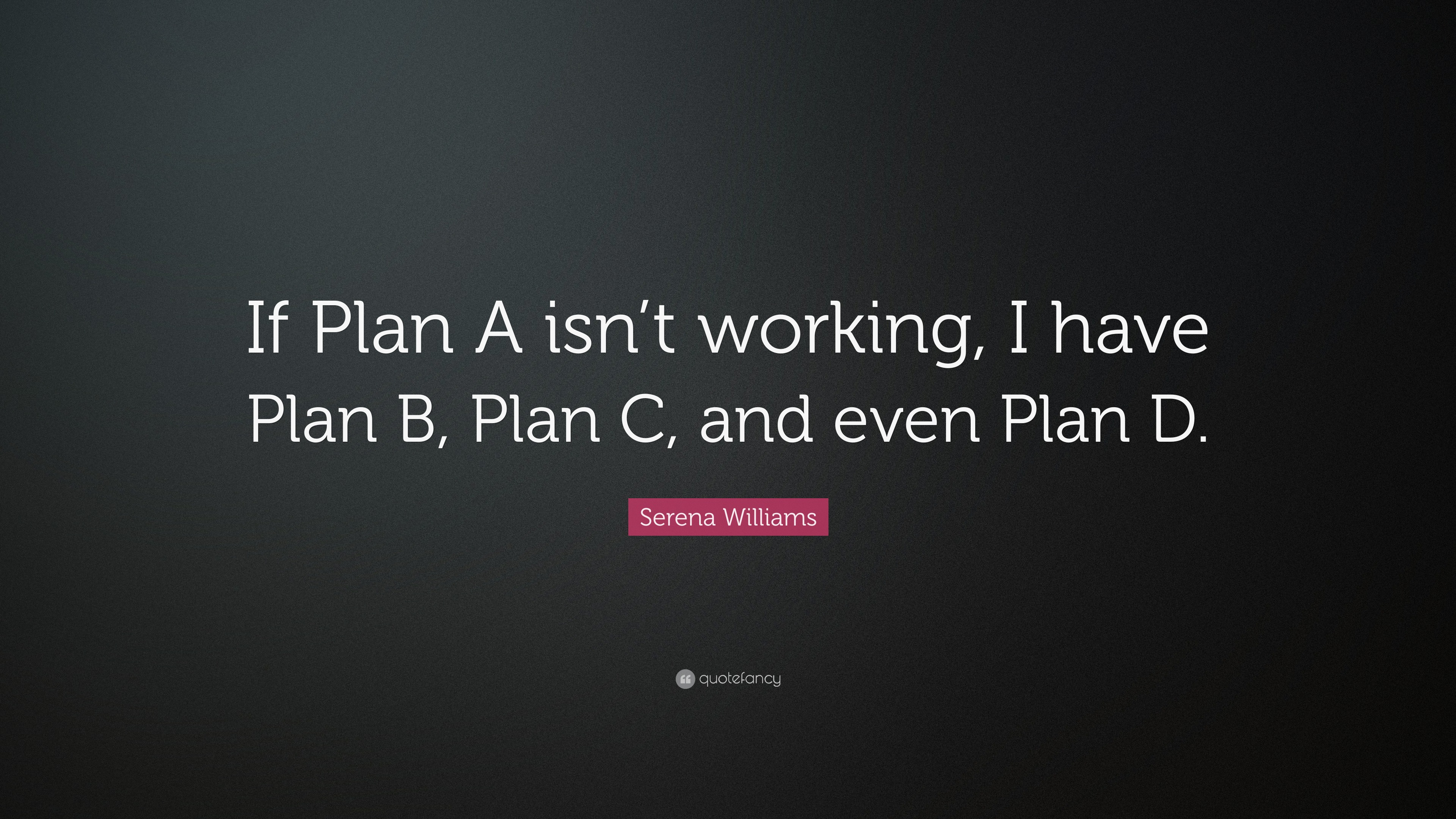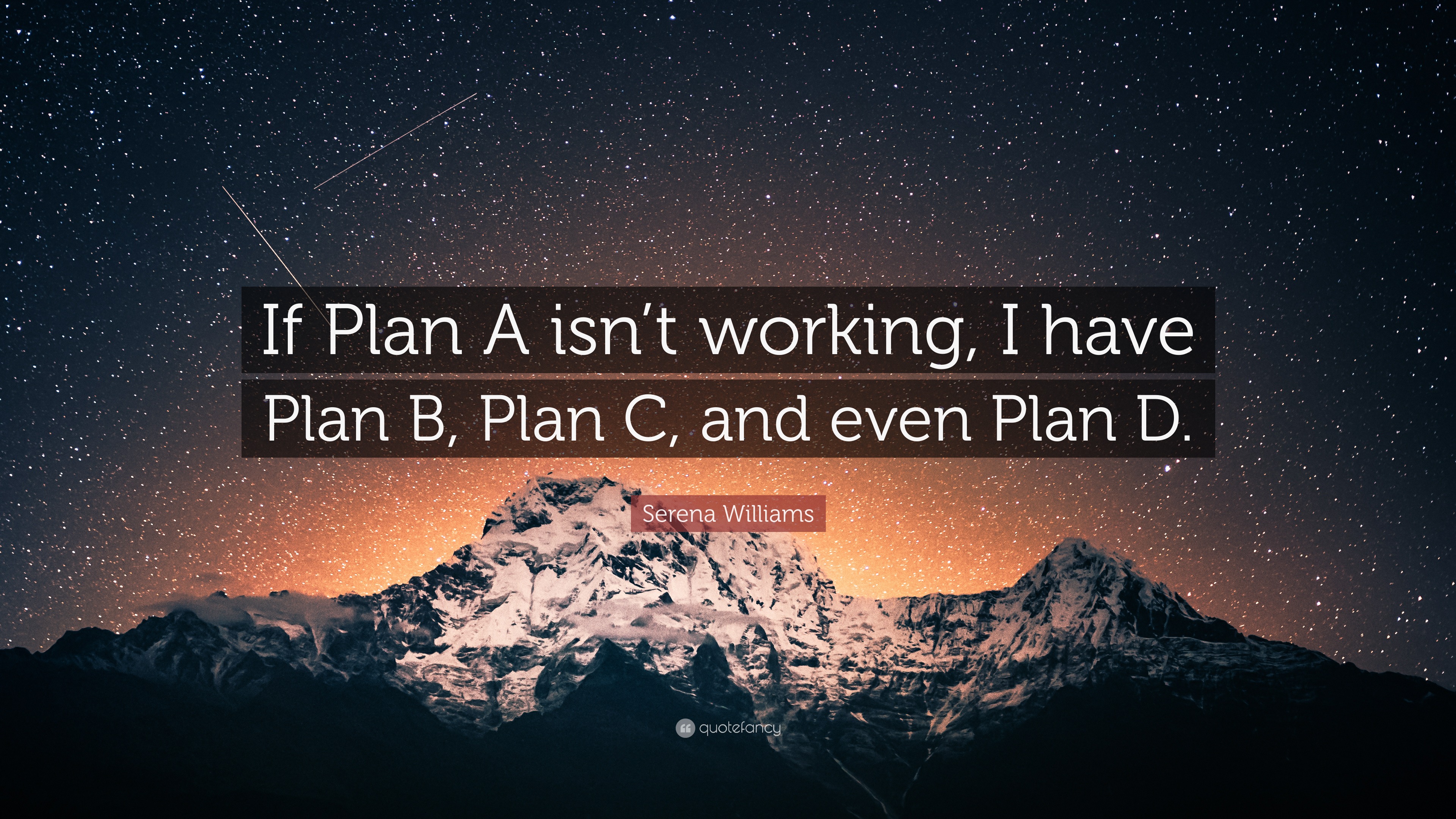If we have a plan b our plan a is less likely to work

If we have a plan B, our plan A is less likely to work

Having a backup plan seems like a smart move in most aspects of life, whether it’s in relationships, career choices, or any other situation that requires careful decision-making. But did you know that having a plan B might actually decrease the chances of our plan A working? It may sound counterintuitive, but psychological research suggests that having a backup plan can undermine our commitment and effort towards our original goal.
Many successful individuals have emphasized the importance of perseverance and dedication to achieve their goals. Serena Williams, the acclaimed tennis player, once said, “If Plan A isn’t working, I have Plan B and Plan C.” While it may seem like a practical approach, the concept behind this quote challenges the notion that having alternatives guarantees success.

One aspect to consider is the mindset we adopt when we have a backup plan. Psychologists have identified a phenomenon known as the “backup plan effect.” This effect suggests that having a plan B can lead to a mindset shift where we become less committed and motivated towards our original plan. Instead of fully investing ourselves, we may start to rely on the backup plan as a safety net, resulting in reduced effort and determination.
Moreover, having a backup plan may introduce unnecessary distractions. When we know there is an alternative option available, we may find ourselves constantly evaluating and comparing it to our primary goal. This constant comparison can lead to doubt and indecision, making it difficult for us to focus wholeheartedly on our plan A. We become hesitant, always questioning whether we should abandon ship and switch to plan B instead.
While having contingency plans isn’t inherently bad, it is essential to understand that they can hinder our progress. Instead of focusing on a single path, our attention gets divided, diluting our efforts and energy. We may become complacent, thinking that if things don’t go as planned, we can simply rely on the backup option.
Moreover, depending on the difficulty of the goal, having a backup plan might give us a false sense of security. We might believe that we have a safety net to fall back on, reducing the sense of urgency and dedication required to succeed in our plan A. As a result, we may not push ourselves to our full potential, settling for mediocrity instead of striving for greatness.
The renowned entrepreneur Elon Musk once said, “I say ‘failure is an option,’ but ultimately, it’s always important to have a backup plan.” While Musk acknowledges the importance of contingency planning, his statement also highlights the acceptance of failure and the risks associated with relying too heavily on backup plans.
In conclusion, backup plans may seem like a logical approach to ensure safety and preparedness. However, psychological research and the experiences of successful individuals suggest that having a plan B can actually diminish our commitment and effort towards our primary goal. The backup plan effect can decrease motivation, introduce distractions, and create a false sense of security. Therefore, it might be worth considering whether having a backup plan is truly necessary or if it could potentially hinder our success in plan A.
Share
Related Posts
Quick Links
Legal Stuff

